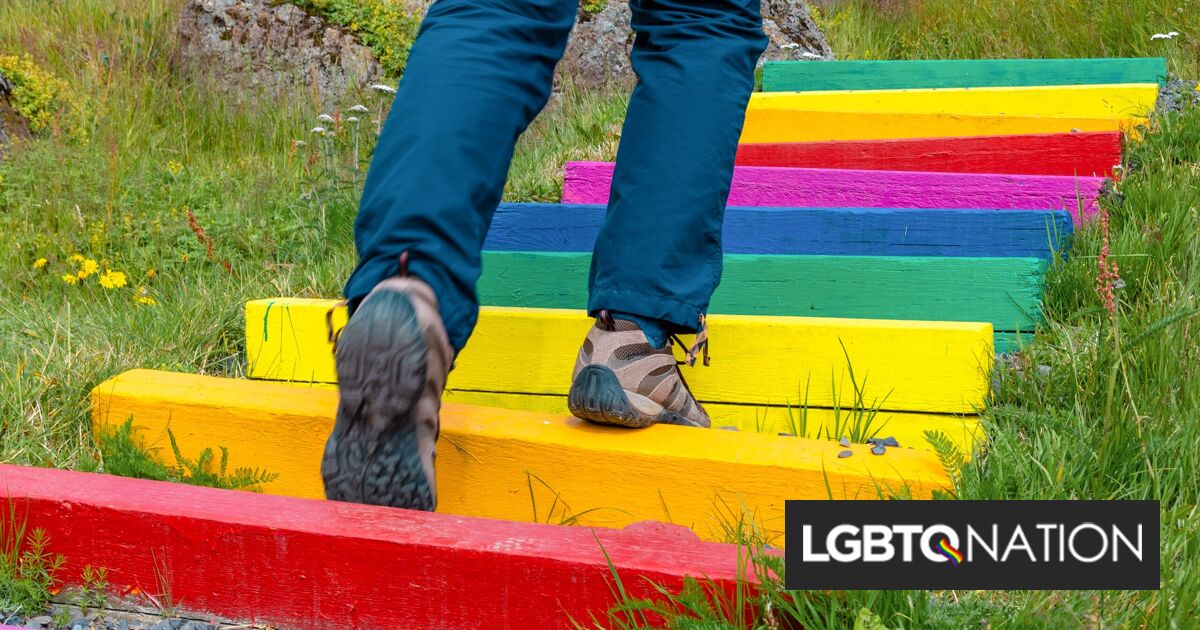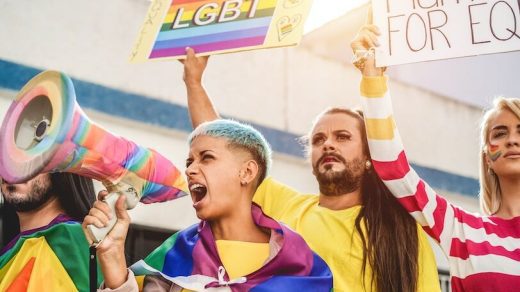Plaintiffs in “Don’t Say Gay” lawsuit are still fighting to repeal the law
Author: Molly Sprayregen

LGBTQ+ organization Family Equality is not giving up on its legal challenge to Florida’s Don’t Say Gay law (H.B. 1557).
A press release from Family Equality announced that the organization, along with individual students, families, and teachers, have filed an appeal after a lower court dismissed the group’s initial challenge to the law.
The law bans discussions of sexual orientation and gender identity in Kindergarten through third grade and restricts such discussions in older grades. It has been used to curtail discussions about LGBTQ+ people and leave students without help if they’re being bullied because of their identities. A recent survey found that over half of LGBTQ+ parents in Florida are considering leaving the state.
“We are already seeing the harmful effects of H.B. 1557,” said Family Equality CEO Stacey Stevenson. “A recent study by the Williams Institute on the impact of this law on LGBTQ+ parents in Florida found that 56% of LGBTQ+ parents surveyed considered moving out of Florida because of the bill and 17% have taken steps to do so. And those are just the families who have the resources to relocate. We’re a plaintiff in this appeal to fight for the freedoms of all LGBTQ+ families in Florida.”
“The bottom line is our families in Florida need and deserve protections. And that’s what we’re fighting for.”
The group filed its initial complaint last year in the United States District Court for the Northern District of Florida, claiming the Don’t Say Gay law violates the first and fourteenth amendments of the Constitution and arguing that the law is deliberately vague.
In October 2022, U.S. District Judge Allen Winsor – who was appointed by Donald Trump – dismissed the complaint, and in February 2023, Winsor also dismissed an amended version.
The lawsuit said that LGBTQ+ students were being “denied equal educational opportunities” and that the law created “a discriminatory educational environment that treats LGBTQ people and issues as something to be shunned and avoided, on pain of discipline and liability.”
Winsor wrote in his denial that “Plaintiffs have shown a strident disagreement with the new law, and they have alleged facts to show its very existence causes them deep hurt and disappointment. But to invoke a federal court’s jurisdiction, they must allege more. Their failure to do so requires dismissal.”
Winsor’s nomination was opposed by civil rights organizations in part because of his long history of working on cases to restrict the rights of women and LGBTQ+ people. He worked on several cases defending Florida’s ban on marriage equality, arguing in one that the state should be allowed to ban same-sex couples from getting married because of “a clear and essential connection between [heterosexual] marriage and responsible procreation and childrearing.”
Stevenson told LGBTQ Nation that Family Equality is “confident in our underlying claims in the lawsuit.”
“This law is blatantly unconstitutional, and already has harmed plaintiffs and countless other LGBTQ+ students, students with LGBTQ+ parents, and teachers.”
Stevenson added that they refuse to give up hope for a victory.
“We simply must have hope. Hope is an act of resistance and our families need all the hope that they can get.”
Actual Story on LGBTQ Nation
Author: Molly Sprayregen





